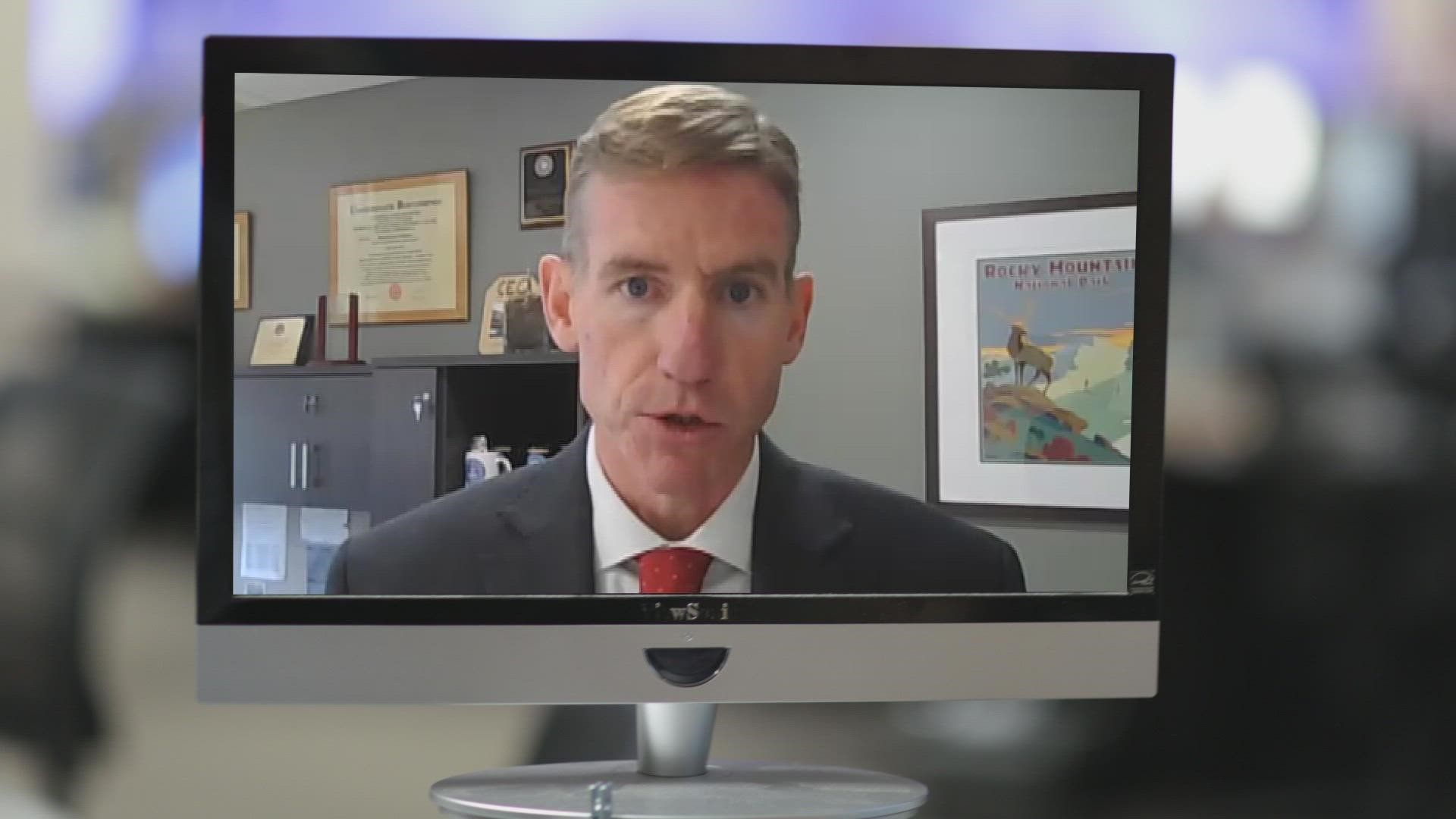COLORADO, USA — Colorado’s district attorneys are set to meet Friday to consider a proposal that would give them the power to seek the removal of weapons from people deemed to be dangerous under the state’s three-year-old “red flag” law.
Currently, only law enforcement officers and close associates – such as family members and housemates – can petition a judge for what’s formally known as an extreme risk protection order, which allows for the confiscation of guns for as little as 14 days and as long as a year.
The Nov. 19 Club Q shooting in Colorado Springs, which left five people dead and 17 others with bullet wounds, ignited a new discussion about expanding the red flag law. That came after the disclosure that the Club Q suspect, Anderson Aldrich, was arrested in June 2021 on kidnapping and menacing charges following threats and a standoff with El Paso County sheriff’s deputies.
At the time, deputies confiscated two weapons, one of them a “ghost gun” with no serial number.
RELATED: Club Q shooting suspect was arrested after 2021 bomb threat, but no effort was made to take his guns
That criminal case languished for more than a year, according to El Paso District Attorney Michael Allen, because the Club Q suspect’s family members would not cooperate in the investigation. Eventually, a judge dismissed the charges.
No one sought a red flag order for the suspect – something Allen said would not have made any difference because Aldrich’s guns were taken during the investigation and held as evidence.
“The case was pending for 383 days under those felony charges,” Allen said at a Dec. 8 press conference. “That is longer than an extreme risk protection order provides.”
Still, Colorado Governor Jared Polis advocated for changes to the law to expand those who can go to court seeking a red flag order, beginning with the top prosecutors in Colorado’s 22 judicial districts.
During discussions about the law in 2019, district attorneys were dropped from the list of those who could file a red flag petition. At the time, at least some district attorneys opposed being included, and some noted that they deal in criminal law and efforts to remove guns under the red flag law are handled in civil court.
The question now is whether the state’s district attorneys, half of whom have been replaced since the law was passed, feel differently.
“I would certainly support the expansion of the statute to include district attorneys,” said Boulder DA Michael Dougherty, who is a Democrat. “Although it's a civil action and we only prosecute criminal cases, I think the nexus to criminal activity, and certainly the tragic consequences we've seen in far too many of these cases, make it appropriate for district attorneys to have the authority and responsibility of going to the court when there's sufficient cause to believe an ERPO petition’s appropriate.”
Allen, a Republican, hasn’t taken a position on the idea – and pointed out that in serious criminal cases judges issue mandatory protection orders that can remove guns from a suspect.
“I’m certainly up to engaging in discussion,” Allen said, “and potentially modifying that legislation to potentially make it appropriately fit certain situations. But again, I want to point out that when we file felony charges, it’s just as strong if not stronger than an extreme risk protection order because of those mandatory protection orders that are automatically put in place at the filing of a felony charge.”
The red flag law took effect Jan. 1, 2020, and from then through the week of the Club Q shooting, a 9Wants to Know analysis of state court data found that 359 red flag petitions were filed, with judges granting 228 of them – about 64%. That analysis also found that petitions filed by law enforcement officers were much more likely to be approved by judges as compared to those filed by citizens.
To date, Polis has not suggested others he would like to see added to those who can ask for a red flag order. However, Dougherty has some ideas, beginning with doctors and therapists – “individuals who have the opportunity to have direct conversations with patients and gain some information and insight into what an individual might be struggling with or can have someone confide in them.”
9News data journalist Zack Newman contributed to this report.
Contact 9Wants to Know investigator Kevin Vaughan with tips about this or any story: kevin.vaughan@9news.com or 303-871-1862.
SUGGESTED VIDEOS: Investigations & Crime

